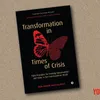Coded Bias sheds light on tech discrimination, and what’s wrong with powerful algorithms
Shalini Kantayya-directed documentary Coded Bias asks the important question of what the future of society would look like in the constant presence of analytics and technology.
“When people talk about the future of work, they talk about automation without talking about gatekeeping.”
These lines - spoken by one of the researchers in the latest Netflix release Coded Bias - highlights the overall theme of the documentary. Coded Bias shifts the focus from humans being in awe at the wonders that analytics and technology can do to the terrifying long-term effects of Artificial Intelligence (AI) and Machine Learning (ML).

Source: Twitter
The year is 2015. Joy Buolamwini, a researcher at Massachusetts Institute of Technology and founder of Cambridge-based digital advocacy organisation Algorithmic Justice League (AJL), tries developing a device called the ‘Aspire Mirror’. The concept is simple - people would have to stare into a webcam to see a reflection on their face based on what inspired them or what they hope to empathise with. Or that is what Joy had planned for.
There was one challenge: the facial recognition software installed in the webcam failed to recognise her face until and unless she put on a white mask.

Joy Buolamwini and her white mask | Source: Twitter
Originally premiered at the 2020 Sundance Film Festival, Coded Bias is an American documentary film, directed by Brooklyn-based filmmaker and activist Shalini Kantayya. The film released on OTT platform Netflix on April 5.
Coded Bias features the work of researchers Joy, Deborah Raji, Meredith Broussard, Cathay O’Neil, Zeynep Tufekci, Silkie Carlo, Timnit Gebru, Virginia Eubanks, and Safiya Umoja Noble, among others.
However, the film follows the journey of three women in particular – Joy; Cathay, an American mathematician, data scientist, and author of bestselling book The Weapon of Math Destruction; and Silkie, director of Big Brother Watch, a non-profit organisation campaigning against state surveillance, police technologies and big data in the UK.

Source: Twitter
Coded Bias begins with Joy finding out how algorithms propagate bias and discrimination, to her ultimately challenging the narrative of use of analytics for public welfare before the Congress.
Computers were introduced to make our lives easier. But when exactly did computers start making important life decisions for us? All this while, we were feeding data to the computer to perform certain tasks. Today, computers can make their own choices. Coded Bias revolves around this evolution of machine learning.
The documentary takes us back into time to narrate the story of the birth of AI, which was then hinged at the ability of a machine to excel at chess. At a time when machines should be used to make absolute and rational decisions, Joy finds out that algorithms pick up the biases of the person who feeds the data to them.
The problem statement is simple: an algorithm identifies a white man more accurately than a black woman. Why? Technology discrimination.

Source: Twitter
The 85-minute documentary emphasises the fact that while we await a society of the future - one to be dominated, if not made easy, by machines - the world is actually heading towards a society that will replicate the minds of those who feed these machines with data. That is, the patterns of the old world, which was heavily dominated by classism, sexism and racism. It constantly emphasises how machines prefer white-skinned subjects - for financial, housing, and hiring decisions. So much so, a police officer can pull one aside for questioning if a machine detects the face of a person wrongly.
While touching upon issues, including the use of analytics to make decisions about jobs, healthcare, access to financial help and even opportunities, Coded Bias keeps coming back to focus on one ethical issue -- the use of facial recognition for ‘public welfare.’
Overall, Coded Bias does seem a little repetitive at parts, with the director focusing more on conversations on the threats that algorithms possess rather than focusing on the solutions, which we understand continues to be blurry to humankind. For a documentary on something as realistic and pronto, a few scenes look staged and unnecessarily dramatised.
At many instances, the documentary reminds one of another Netflix masterpiece and docu-series, The Social Dilemma.
The documentary ends with the audience asking important questions to themselves: What is it to be human? What is it to make flaws? And ultimately, what is going to happen with all the data that we have already fed the systems, and that is already collected by the Big Five data companies?
Verdict: Watch Coded Bias if you want to rethink sharing data for the rest of your life.
Edited by Teja Lele









